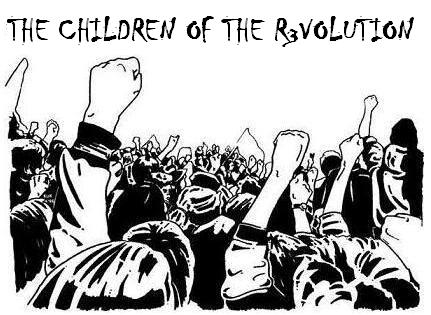 I had the opportunity last night to watch a Time Magazine-sponsored forum at which John McCain and Barack Obama appeared separately, addressing the importance of national service and its various forms. My first inclination, upon watching the introduction, was to change the channel. It seemed like the subject matter was pure fluff, all but certain to elicit feel-good platitudes from both candidates that added nothing to the national dialogue. But I was pleasantly surprised to see, as the program unfolded, that the moderators, whether they knew it or not, were giving voice to one of the central issues of the election, and that is the philosophy of government. On whatever issue Republicans and Democrats disagree, I will guarantee you that the root cause of the debate is their respective interpretations of the role of government in American society. And those differences were on parade last night.
I had the opportunity last night to watch a Time Magazine-sponsored forum at which John McCain and Barack Obama appeared separately, addressing the importance of national service and its various forms. My first inclination, upon watching the introduction, was to change the channel. It seemed like the subject matter was pure fluff, all but certain to elicit feel-good platitudes from both candidates that added nothing to the national dialogue. But I was pleasantly surprised to see, as the program unfolded, that the moderators, whether they knew it or not, were giving voice to one of the central issues of the election, and that is the philosophy of government. On whatever issue Republicans and Democrats disagree, I will guarantee you that the root cause of the debate is their respective interpretations of the role of government in American society. And those differences were on parade last night.Questions arose immediately about the role of government in national service. More specifically, should the government expand its own service programs, such as the Peace Corps and AmeriCorps, or offer incentives or sponsorship of private service programs? While McCain applauded the work of existing government service initiatives, he cautioned that the government is not always the answer. He cited the fact that private, often faith-based programs have been wildly more successful in dealing with poverty, crises and humanitarian issues. And more importantly, their work costs the American tax payer little to nothing. When repeatedly pressed on whether government programs should be expanded, McCain seemed almost impatient and dismissive of the premise of the questioning. He was asked about whether there should be compulsory forms of service other than the military, at which McCain balked, cautioning that national service can be corrupted when altruistic motives are taken out of the equation and replaced by government mandates. He had the following comments to make about government’s role in national service in general:
“I haven’t agreed with all of what Senator Obama has proposed, but I think they’re very good proposals there. Some of them are new, some of them are obviously not.
“But I also want to emphasize there, it doesn’t always have to be run by the government. That’s why we also ought to understand that faith-based organizations, other volunteer organizations that are completely separate from the government, have nothing to do with the government, are amongst the most successful.
“So let’s not get entrapped by the idea that the government has to run these voluntary organizations and volunteer kinds of programs, because a lot of times the job can be done better with our encouragement.”
He concluded, “But I want to be careful about expanding it (government) when — my philosophy is let’s not have government do things that the private sector can do, or other organizations can do. That’s just my theory of government.”
Obama drew a stark contrast, however. He was quick to embrace a larger role for government in national service, countering McCain’s argument about private service organizations by saying that government programs do not crowd out those groups or make them less successful, but rather there is a role for everyone to play. I would remind the reader that while more may seem to be better in some cases, in the realm of government more just means increased federal spending and higher taxes. This should be underscored by Obama’s proposal during the forum last night to not only expand existing national service initiatives, but create a Classroom Corps, a Health Corps and a Clean Energy Corps. His argument was that Americans should indeed be compelled to serve by the government in the face of increased challenges. Some of his comments on the role of government are below:
“I believe firmly that government should expand avenues of opportunity. I want to create an energy corps, a clean energy corps that can mobilize individual citizens to help create greater energy efficiency in our country. I want to mobilize seniors to get involved with their schools or their local hospital or health clinic.
“So there are going to be a whole range of ways that we can do it. Some of that is going to cost money, but mostly it requires government providing these opportunities and these avenues and a president who is willing to inspire people to get involved and get outside of themselves. That’s something we’re doing in this campaign, and that’s something I think I can do as president.”
I think something that needs more attention in this election is not personal narratives or experience and qualifications, but rather the underlying philosophy these candidates have about how much of a right government has to intrude into your private life and, just as importantly, into your pocketbook. Senator McCain’s comments about avoiding government redundancy by keeping it out of avenues that are adequately filled by private initiative are directly in line with the fundamental principles of our Constitution. Conversely, Senator Obama represents an adherence to Socialist tenets that would increasingly tie your life and well-being to the fate of the federal government, creating a dependency on the part of average citizens upon Washington. In an election season when both candidates are running on change and reform, the first question we should ask ourselves is whether that change will promote the ideals of our nation’s founding.
You can see the transcript of last night’s national service forum here.







2 comments:
I had the opportunity to catch the tail end of this forum. Unfortunately, Senator McCain had finished speaking, but I could infer some of his responces from the questions posed to Senator Obama ("Senator Obama, you heard Mr. McCain say...").
Those directing the dialogue, who I assumed were also in the business of advancing the interests of "servicenation.org", the sponsor, seemed to prefer Senator Obama's compulsory service philosophy in my view. Ironic, as it is, that they are a non-government service initiative, and would probably see more harm than good from the federalization of volunteerism.
I did some research into service nation as well, and am actually someone optomistic about the concept. I signed up for their "service list" or whatever it was called, and do honestly hope I might be able to use some of their resources in the future. I did have some critiques for them - specifically, in regards to their website. I was suprised that, under a section of the website marked "Take Action", there were no links or resources relating to military service. I would think if you are an organization advocating civil service, that should be right up at the top.
All in all, it was a good dialogue. The concept of cabinet level "Service Czar" seems to me another wasteful expansion of government authority. The broader implication of such a dialogue, however, is to remind all of us that this is a country in which you have responsibilities as well as rights. Perhaps the pendulum is beginning to swing, and we will move away from the "society owes me" attitude nutured by the nanny-state for my entire lifetime back to the "for God and country" attitude on which our nation was founded, and became great.
I too caught the end of this yesterday -
As much as I fear the neofascist tendencies of right-wing republicans (fervent nationalism as the religion of the masses coupled with a powerful military state that hybridizes government and private enterprise), Obama's vision is much more directly Naziesque.
He would have us compelled to service. And not service at arms in defense of our fellow citizens, but in service to the tyrranical majority that voted him into power. In service to the misguided notion that not the market or the voter, but a single man knows best how to mobilize a nation?
There is nothing more evil that what Obama said last night. Living under Sharia law would seem tolerable compared with serving the black Caligula. At least in the world today assholes have the right to be assholes and we have the right to disagree, or even to imprison and kill them. Obama offers us a world devoid of choice, devoid of ambition, devoid of genuine feeling, all replaced by the clarion call of service to neighbor.
I fear.
Post a Comment